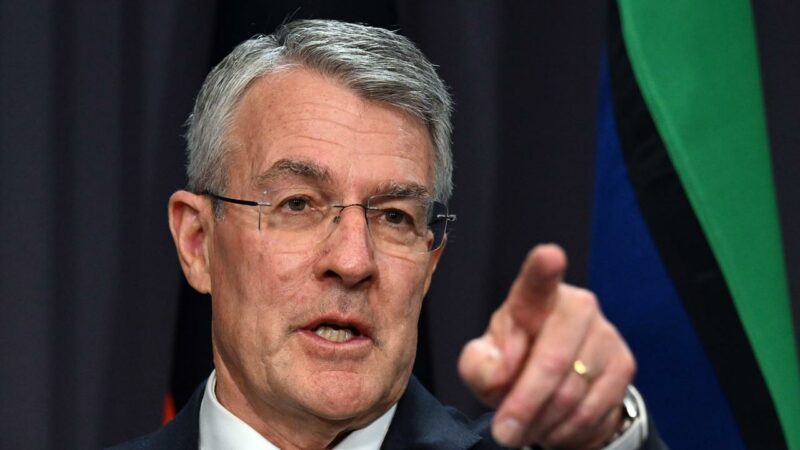A bit of sunlight to disinfect our politics. Or the star chamber in friendly garb? While the pros of adding another layer to the oversight of our MPs seem obvious, Mark Sawyer sees a few cons, particularly the demise of deal-making.
The wait is over. The federal integrity watchdog is coming. Three decades after the Independent Commission Against Corruption in NSW introduced the concept to Australia, the NACC (National Anti-Corruption Commission) is finally coming to Canberra.
The body has long been advocated by the growing numbers of cross-bench MPs (Greens and independents). It was backed by the Labor opposition, so it became inevitable once Anthony Albanese’s ALP unseated the Coalition government on May 21.
Happy days? Maybe.
MWM has long campaigned for such a body. But Michael has consented to publishing a dissenting view. Independent media at its best.
So what is political corruption? Nobody (hopefully) disputes that an MP taking delivery of brown paper bags full of cash in return for a government contract is corrupt. (It’s also, natch, against the law.) Or taking an inducement, say a juicy job, in return for vacating his parliamentary seat (although there are complications there, as we shall see). Then there’s the ‘’bad look’’. One minute she’s the minister for say, aged care, then she’s the CEO of a private provider of aged care services that relies heavily on government contracts.
These matters, rightly, come under scrutiny in the legal and political arena. That’s not to mention the increasing public intolerance of special deals for MPs. Look at the furore that attached to former deputy premier John Barilaro landing a plumb job in New York, courtesy of the NSW government. That job has been withdrawn.
It would be nice to think that the public backlash and media scrutiny of such matters as the Barilaro affair, backed up with an independent judiciary, would be enough for dealing with political malfeasance. But we have been told we need the help of more of our finest legal minds to decide for us.
So how will the new body deal with straight political deal-making that does not involve direct inducements?
It’s not an outlandish concept. The late independent senator Brian Harradine dealt blatantly in pork-barrelling for Tasmania. He secured millions for his state in return for such deals as the Howard government’s privatisation of Telstra. Nobody called him a shonk. Instead, he was the master of negotiation.
We could have used someone like Harradine when the Senate knocked back the Rudd government’s Carbon Pollution Reduction Scheme in 2009 and in doing so, set up a decade and more of the ‘’climate wars’’.
“Massive achievement” but is the NACC anti-corruption commission missing some teeth?
There are complex reasons for that vote, and there is blame to be shared between Labor, the Coalition and the Greens. But ultimately, the Australian political class failed to do a deal, and our first carbon tax was strangled at birth.
Imagine instead a scenario where the legislation passed because some senators from poorer states such as Tasmania and South Australia had been offered, say, road upgrades and a revamp to a sporting stadium or two. Instead of a decade of climate paralysis, perhaps a bit of political deal-making. Or something that used to happen in America.
‘I got to have those votes’
Jack Valenti was a key figure in America’s cinema industry. Before that he was a special counsel to Lyndon Baines Johnson, US President 1963-69. In that role he had a ringside seat to some titanic deal-making.
LBJ and Valenti would entertain Senate minority leader Everett Dirksen and other leaders of the opposition Republican Party in the White House mansion after hours. This is how the sausage was made, as described by Valenti in the PBS series The American Experience (slightly edited):
The President would say, “Now, Everett, I’ve got to have three Republican votes, and you know who they are.” … And Dirksen would say, “Well, Mr President, I happen to have here some names of some likely nominees to the Federal Power Commission and the Federal Communications Commission and a few other commissions.” And the President would say, “Well, give their names to Valenti here. We’ll check them out with the FBI, see if they’re fit to serve their country.” And they’d have another drink.
And there was no summary of the meeting given. Each of them knew that Johnson was going to get three Republican votes, and Dirksen knew that he was going to get three nominees to commissions. I don’t know if they teach that in Government 101 in any of the schools, but it worked.
That sort of politics is not only scorned in ”Government 101”, but it is positively poisonous in 2022. Yet it enabled Johnson to expand civil and voting rights for African-Americans and enact federal welfare and education programs, among many others, for his ‘’war on poverty’’.
That was nearly 60 years ago. Now US politics is riven. Nobody is doing deals. The nation is unable to move forward in any meaningful way on gun control. The franchise is being limited by state governments. Abortion rights depend on which state a woman lives in.
The political divide is colossal. Supreme Court judges were once confirmed with near unanimity in the Senate. Now the confirmation hearings are partisan contests. Even an impeachment vote against the president was conducted on party lines, with only a couple of exceptions. That’s what a world without political deal-making can look like.
No deals for us
In Australia, the most avid proponents of the no-deal method of politics are cross-benchers (Greens and independents). It is no coincidence that they will never deal with the complexities of executive power. As legislators, their influence is enhanced the more they can shackle the executive, which unlike in the US, consists of elected members of parliament.
A small irony: the cross-benchers thrive in a hung parliament. There was much gnashing of teeth when the electorate failed narrowly to deliver one on May 21. But hung parliaments are about horse trading, deal-making. Otherwise they become unworkable.
And those same MPs who make up the executive are already subject to harsh sanction: sudden unemployment. US cabinet members are appointed, but Australian voters can unseat anyone. In recent elections, Australians have turfed out a sitting prime minister, a sitting treasurer, and an ex-prime minister.
The concept of a safe seat has eroded. Liberal senator Jane Hume has observed that 20 years ago, about half the House of Representatives seats were won on primary vote. In 2013, that had dropped to 50. In the last election it was 15 out of 151.
Whistling up an allegation
Attorney-General Mark Dreyfus has promised protection for whistleblowers. This may be one of the most hardy of political promises. But what is a whistleblower? The image most of us would have is of a square-jawed, Buzz Lightyear type, who has acted out of conscience and articulates the crime he is exposing with shining clarity.
We don’t picture the wild-eyed, muttering man that many hapless journalists have dealt with. This man presents as a ‘’whistleblower’’. He arrives for the interview carrying five shopping bags of official correspondence replete with advice that ‘’we have closed our files on this matter’’ and ‘’further harassment of our staff will force us to notify the police’’.
‘’Whistleblowers’’ can be seen outside some of our parliaments. Take a gander at the desperate people waving placards that say things like ‘’Ripped off’’ or ‘’Homeless because of politicians’’.
True, genuine whistleblowers exist, and they have been treated appallingly. In the 1970s, detective sergeant Philip Arantz told the media that the NSW police force falsified crime statistics, concealing their corrupt dealings with criminals in the process. He was gaslighted as mentally unfit by his superiors and lost his career.
Arantz was real. Julian Assange is real, so is Bernard Collaery. But there is little concept in the media that some whistleblowers may be motivated by something less than purity – a personal get-square perhaps. The commission will presumably weed out those people – presumably.
Another US president, Ronald Reagan, would joke about playing the intrepid investigative reporter during his acting career. ‘’I’d ring the news desk and tell them: I’ve got a scoop that’s going to blow the lid off this town.’’
Sounds a little like our federal integrity commission. Look out, Canberra!
The expanding notion of integrity
‘’A body with teeth’’. Those words, spoken by so many advocates of the integrity commission, should strike fear into Australians. Unaccountable bodies keeping accountable politicians even more accountable. Politicians elected by us, but with their hands tied. If we are not careful, our elected politicians, labouring under a blanket presumption of guilt, will be rendered subordinate to a guardian council of bureaucrats, lawyers and academics, revelling in their shared assumption of virtue.
The remit of the federal integrity body seems to expand every time it is mentioned. It’s not just federal politicians and public servants, but contractors, other business people, unions. It sounds like a parallel legal system but without the protections afforded the accused in common law. We are wary of overreach in the cases of Assange, Collaery and others, but willing to contemplate the concept of ‘’grey zones’’ of corruption. In other words, we are relaxed about a legally constituted body (lawyers and legal support staff, basically) making political or moral judgments.
Judgments that may yet be remitted to the courts. Look at the first big scalp of the NSW ICAC: the man who introduced the body, Liberal premier Nick Greiner, who became embroiled in a scandal over a job offer for a former Liberal MP.
According to Wikipedia: ‘’ICAC commissioner Ian Temby concluded that while Greiner had not acted criminally and had not set out to be corrupt, he would be seen ‘by a notional jury as conducting himself contrary to known and recognised standards of honesty and integrity’. Greiner was successful in getting the finding overturned in court.’’
One thing is clear. It’s always the ‘‘other guy’’ whose integrity is in question. Or, to paraphrase John Harington (1561-1612): Corruption doth never prosper; what’s the reason? / If it prosper, none call it corruption (for ‘‘corruption”, he said ”treason’’).
‘‘Be afraid,’’ Dreyfus said on Tuesday. The fear might spread further than any supporter of this body can contemplate, eating into Australians’ sense of fairness.
Mark Sawyer is a journalist with extensive experience in print and digital media in Sydney, Melbourne and rural Australia.

